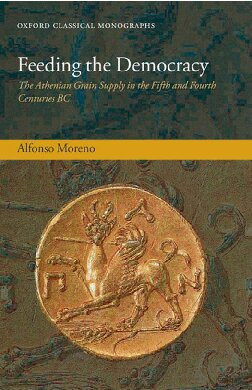

Most ebook files are in PDF format, so you can easily read them using various software such as Foxit Reader or directly on the Google Chrome browser.
Some ebook files are released by publishers in other formats such as .awz, .mobi, .epub, .fb2, etc. You may need to install specific software to read these formats on mobile/PC, such as Calibre.
Please read the tutorial at this link. https://ebooknice.com/page/post?id=faq
We offer FREE conversion to the popular formats you request; however, this may take some time. Therefore, right after payment, please email us, and we will try to provide the service as quickly as possible.
For some exceptional file formats or broken links (if any), please refrain from opening any disputes. Instead, email us first, and we will try to assist within a maximum of 6 hours.
EbookNice Team

Status:
Available4.3
33 reviews
ISBN-10 : 019922840X
ISBN-13 : 9780199228409
Author: Alfonso Moreno
The reliance of democracies on vital supplies of energy from distant and non-democratic sources is probably the most pressing and dangerous problem of modern times, but it is not a new phenomenon. Classical Athens, the birthplace of democracy and the largest and historically most important of the ancient Greek city-states, depended for its survival on the constant importation of grain from overseas lands as remote as Ukraine and southern Russia, and this trade was ultimately controlled by powerful politicians, wealthy landowners, and kings. Alfonso Moreno examines how this resource need determined Athenian foreign policy, prompting recourse to military conquest and ruthless resettlements, and how uncomfortable realities (especially elite control) were made acceptable to popular audiences.This study of ancient trade and politics reveals a Greek world as globalized as our own, and convulsed by the same problems that such interdependence and sophistication entail.
PART I. MODELS AND CALCULATIONS
1. From Crisis to Uncertainty: Calculating Athenian Grain Production
I. The Land
II. Use of the Land
III. Crop Yields
IV. Population
V. Consumption
VI. Conclusion
PART II. ARCHAEOLOGY
2. Euonymon: The Agriculture and Economy of the Classical Athenian Deme
I. Euonymon: General Overview
II. Regional Landscape
III. Intensive versus Subsistence Agriculture
IV. The Economy of Euonymon
V. Attica and the Athenian Market
VI. Conclusion
3. The Fruits of Empire
I. Athens and Euboea
II. The Big Picture: Euboean Agriculture, Geography, and History
III. Patterns of Athenian Land-Holding and the Athenian Cleruchies on Euboea
IV. Forts and the Imperial Territory
V. Conclusion
4. Ex Ponto: The Athenian Grain Supply and Black Sea Archaeology
I. Northern Black Sea Aristocracies: Sixth and Fifth Centuries
II. The Royal Economy: From 438 to the End of the Fourth Century
III. Conclusion
PART III. LITERATURE
5. Bread and Politics: The Ideology of the Grain Supply in Athenian Rhetoric
I. The Dealers
II. Grain-Importers: Emporoi and Naukleroi
III. “Outside” Athenian Politics? The Evidence from Commercial Suits (Dikai Emporikai)
IV. Conclusion
feeding the other
feeding the dragon
feeding the other book
feeding the frenzy
democracy for the few audiobook
Tags: Feeding, the Democracy, The Athenian, Fourth Centuries, Alfonso Moreno